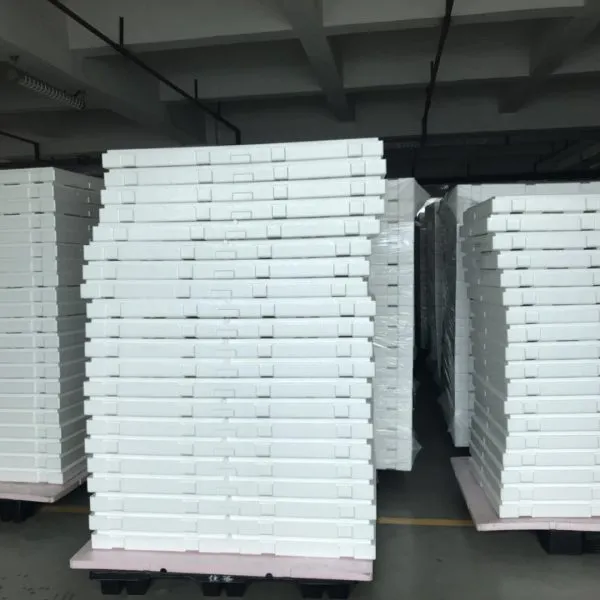


Why Choose Our Sheets
Expanded Polypropylene (EPP) foam sheets are a type of lightweight, closed-cell foam material. They are manufactured through a process of expanding
polypropylene beads with heat, which results in a foam structure with excellent cushioning, insulation, and resilience properties.
1.Versatility: EPP foam sheets are incredibly versatile, suitable for various applications ranging from packaging to automotive parts due to their excellent
cushioning and insulating properties.
2.Durable: EPP foam is known for its durability and resilience. It can withstand repeated impacts and compression, making it ideal for long-term use.
3.Lightweight: Despite its durability, EPP foam is lightweight, which helps reduce transportation costs and makes handling easier.
4.Shock Absorption: EPP foam excels in shock absorption, making it an excellent choice for protecting delicate items during shipping or transportation.
5.Thermal Insulation: The closed-cell structure of EPP foam provides excellent thermal insulation, helping to maintain the temperature of packaged goods
or providing insulation in construction applications.
6.Chemical Resistance: EPP foam is resistant to many chemicals, oils, and solvents, making it suitable for a wide range of industrial applications.
7.Recyclable: EPP foam is recyclable, contributing to sustainability efforts and reducing environmental impact.
This table below provides a concise comparison of the key features and characteristics of EPP foam and EPS foam, helping to illustrate their differences and suitability for various applications.
| Feature | EPP Foam | EPS Foam |
|---|---|---|
| Material Composition | Expanded Polypropylene (PP) | Expanded Polystyrene (PS) |
| Density | Generally higher density | Generally lower density |
| Strength | High impact resistance | Brittle, less impact resistance |
| Resilience | Very resilient, returns to shape after compression | Less resilient, may deform permanently under pressure |
| Weight | Lightweight | Lightweight |
| Thermal Insulation | Moderate | Excellent |
| Chemical Resistance | Resistant to chemicals, moisture, and UV radiation | Susceptible to chemicals and moisture |
| Applications | Automotive components, sports equipment, packaging | Insulation, packaging, construction |
| Environmental Impact | Recyclable | Recyclable, but less environmentally friendly than EPP foam |

Why Choose Our Sheets
Expanded Polypropylene (EPP) foam sheets are a type of lightweight, closed-cell foam material. They are manufactured through a process of expanding
polypropylene beads with heat, which results in a foam structure with excellent cushioning, insulation, and resilience properties.
1.Versatility: EPP foam sheets are incredibly versatile, suitable for various applications ranging from packaging to automotive parts due to their excellent
cushioning and insulating properties.
2.Durable: EPP foam is known for its durability and resilience. It can withstand repeated impacts and compression, making it ideal for long-term use.
3.Lightweight: Despite its durability, EPP foam is lightweight, which helps reduce transportation costs and makes handling easier.
4.Shock Absorption: EPP foam excels in shock absorption, making it an excellent choice for protecting delicate items during shipping or transportation.
5.Thermal Insulation: The closed-cell structure of EPP foam provides excellent thermal insulation, helping to maintain the temperature of packaged goods
or providing insulation in construction applications.
6.Chemical Resistance: EPP foam is resistant to many chemicals, oils, and solvents, making it suitable for a wide range of industrial applications.
7.Recyclable: EPP foam is recyclable, contributing to sustainability efforts and reducing environmental impact.
This table below provides a concise comparison of the key features and characteristics of EPP foam and EPS foam, helping to illustrate their differences and suitability for various applications.
| Feature | EPP Foam | EPS Foam |
|---|---|---|
| Material Composition | Expanded Polypropylene (PP) | Expanded Polystyrene (PS) |
| Density | Generally higher density | Generally lower density |
| Strength | High impact resistance | Brittle, less impact resistance |
| Resilience | Very resilient, returns to shape after compression | Less resilient, may deform permanently under pressure |
| Weight | Lightweight | Lightweight |
| Thermal Insulation | Moderate | Excellent |
| Chemical Resistance | Resistant to chemicals, moisture, and UV radiation | Susceptible to chemicals and moisture |
| Applications | Automotive components, sports equipment, packaging | Insulation, packaging, construction |
| Environmental Impact | Recyclable | Recyclable, but less environmentally friendly than EPP foam |